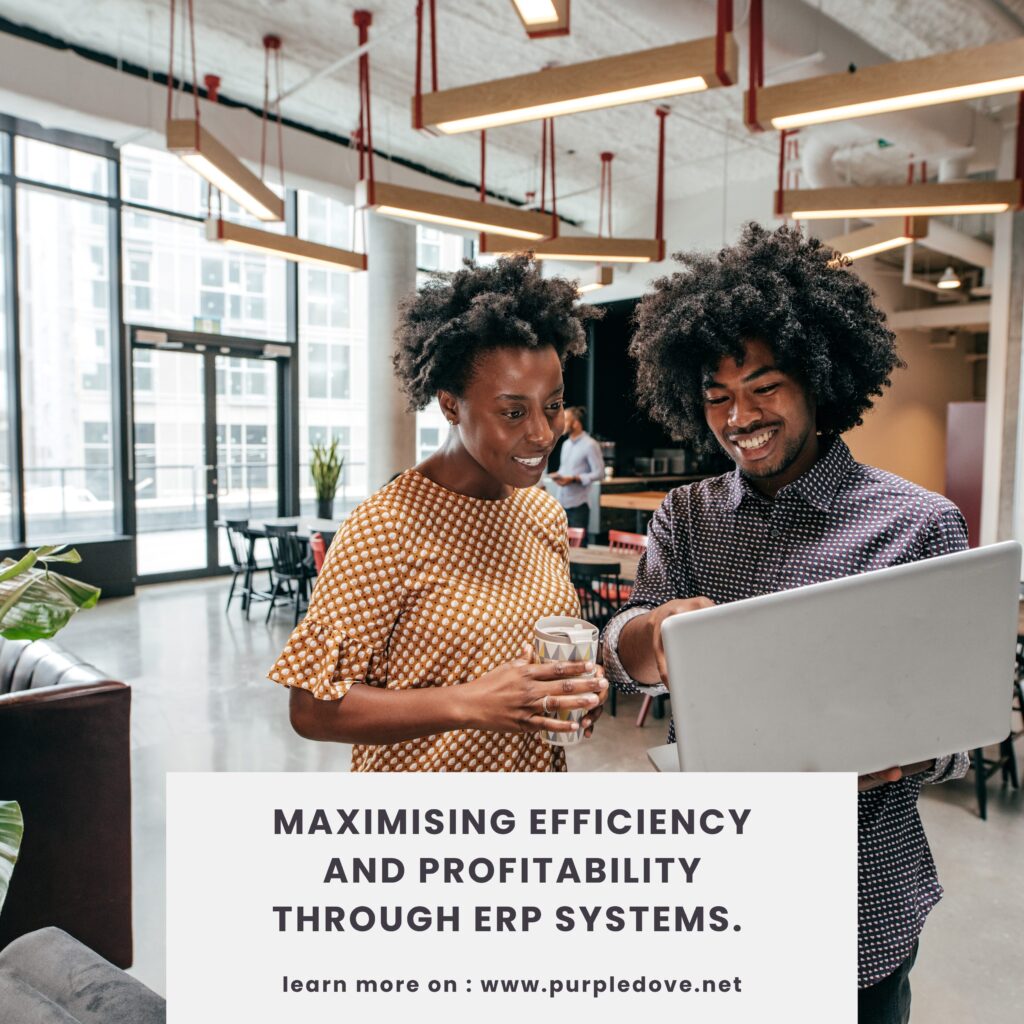Implementing an ERP system can be a significant investment, but understanding its Return on Investment (ROI) can help businesses justify the cost and realise the financial benefits. This comprehensive guide delves into the ROI of ERP systems, illustrating how these platforms can enhance productivity, improve resource management, and drive growth.
Understanding ERP Systems
ERP systems integrate core business processes, facilitating seamless data flow and real-time information sharing. They centralise data from departments such as finance, HR, sales, and inventory, enabling better decision-making and operational efficiency. Common features of ERP systems include automated workflows, advanced analytics, and customisable dashboards, which collectively help businesses reduce manual tasks and minimise errors.
Benefits of ERP Systems
1. Increased Operational Efficiency:
ERP systems streamline and automate various business processes, from inventory management to order processing and financial reporting. Businesses can operate more smoothly and cost-effectively by eliminating manual tasks and reducing inefficiencies. This increased efficiency translates into tangible financial savings over time. By automating routine tasks, ERP systems free employees to focus on strategic activities, boosting overall productivity.
2. Enhanced Productivity:
With ERP software, employees can access real-time data, collaborate more effectively, and make informed decisions faster. This improved productivity leads to higher output levels and greater revenue generation for your business. By optimising resource allocation and minimising downtime, ERP systems help maximise the value of your workforce.
3. Cost Savings:
ERP systems consolidate data and operations into a centralised platform, eliminating the need for multiple standalone systems and manual data entry. This consolidation reduces administrative overhead, IT maintenance costs, and the risk of errors. Additionally, ERP software can identify areas of waste and inefficiency, enabling businesses to make strategic cost-cutting decisions.
4. Enhanced Decision Making:
ERP systems provide comprehensive insights into various aspects of your business, including sales performance, inventory levels, and customer preferences. By leveraging advanced analytics and reporting tools, businesses can make data-driven decisions that optimise profitability and mitigate risks. This ability to forecast trends and anticipate market changes enhances strategic planning and drives long-term financial success.
5. Improved Customer Satisfaction:
By streamlining processes and enhancing communication across departments, ERP systems enable businesses to deliver superior customer service. Timely order fulfilment, accurate billing, and personalised interactions contribute to higher customer satisfaction levels and increased repeat business. Satisfied customers are more likely to become loyal advocates for your brand, driving revenue growth and enhancing your competitive edge.
6. Scalability: ERP systems grow with your business, accommodating increased transaction volumes and expanding functionalities as needed.

Key Metrics to Track
1. Order Fulfillment Time: Faster order processing can directly impact customer satisfaction and repeat business.
2. Inventory Turnover: Efficient inventory management reduces holding costs and minimises stockouts.
3. Financial Closing Time: Reduced time for financial closing indicates streamlined accounting processes.
4. Production Yield: Improved production efficiency and reduced defect rates contribute to cost savings and higher product quality.
Implementation Tips
1. Define Clear Objectives: Establish specific goals for your ERP implementation to ensure alignment with business needs.
2. Choose the Right Vendor: Select an ERP provider with a strong track record and robust support services.
3. Plan for Change Management: Prepare your team for the transition by offering comprehensive training and support.
4. Monitor Progress: Regularly assess the performance of your ERP system against predefined KPIs to ensure it meets your expectations.
FAQ
1. What is ERP?
– ERP stands for Enterprise Resource Planning, a software that integrates various business processes into a single system.
2. How does ERP improve ROI?
– ERP systems improve ROI by enhancing efficiency, reducing costs, and increasing revenue through better resource management and decision-making.
3. What industries benefit from ERP?
– ERP systems benefit various industries, including manufacturing, retail, healthcare, and services.
4. What are the key features of ERP systems?
– Key features include automated workflows, real-time data access, advanced analytics, and customisable dashboards.
Conclusion
Investing in an ERP system can yield significant financial benefits for your business. By understanding the ROI of ERP, you can make informed decisions that drive efficiency, reduce costs, and enhance profitability. Carefully planning your ERP implementation and monitoring its impact through key metrics will ensure you maximise the return on your investment.
Contact us for your ERP consultation.
